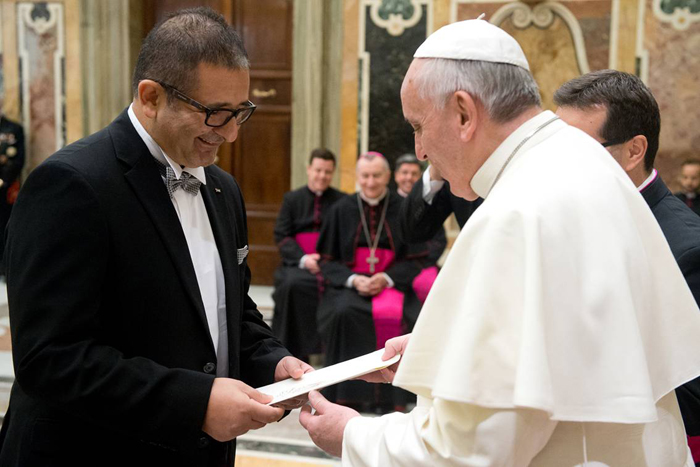 While most Christians around the world will be celebrating the canonization of two selfless and pious women in the Vatican on May 17, Palestine will celebrate the canonization of two of our nation’s daughters, Sisters Marie-Alphonsine Ghattas and Mariam Baouardy for their tireless, humble contributions to this world and the message of inspiration they carried into the next.
While most Christians around the world will be celebrating the canonization of two selfless and pious women in the Vatican on May 17, Palestine will celebrate the canonization of two of our nation’s daughters, Sisters Marie-Alphonsine Ghattas and Mariam Baouardy for their tireless, humble contributions to this world and the message of inspiration they carried into the next.Sister Mari-Alphonsine, founder of Palestine’s first congregation, the Dominican Sisters of the Most Holy Rosary of Jerusalem, was first recognized as a miracle by Pope Francis in 2014. She dedicated her life to the poor and is a pillar to the Palestinian community as a whole.
The birthplace of Christianity and home to the first Christian (lest we forget Jesus Christ), Palestine comprises some of the oldest Christian communities in the world. Our Christian population is an integral part of our fabric and collective struggle in face of the Israeli occupation, and this canonization highlights the prominent and essential feature of the Palestinian Christian community.
During the 2014 attack on Gaza, the daughters of Marie-Alphonsine Ghattas (known as the Sisters of the Rosary) were found throughout the community, in the face of the Israeli siege, serving the people and inspiring hope in their flock. Even during the most difficult times, the Sisters of the Rosary refused to close their doors and continued to offer their support and consoled the people who have suffered land confiscation, child imprisonment, and forced family displacements.
To talk about Sisters Marie-Alphonsine Ghattas and Mariam Baouardy is to talk about the struggle of the Palestinian people to be on its own land, and particularly of the situation of Palestinian Christians. One of the known phrases of the late Yasser Arafat was “there is no Palestine without Christians.”
This is being done in the context of internationalization of the Palestinian struggle for freedom and independence led by President Mahmoud Abbas, and the signing of several international treaties that only reaffirm our commitment to the freedom of worship in Palestine.
Israeli illegal policies has threatened the identity of Occupied East Jerusalem as a city separated from its twin city, Bethlehem. This situation was witnessed by H.H. Pope Francis during his visit to Palestine while he also heard from Palestinian Christian families in Bethlehem about the hardships imposed on them by the Israeli occupation. From the villages destroyed in 1948 to the division between Bethlehem and Jerusalem, the Holy See and the international community are well aware of what the Palestinian people suffered.
When celebrating the canonization of Marie-Alphonsine and Mariam Baouardy, we are celebrating the Palestinian commitment to justice, freedom, love and peace. We celebrate their actions and blessings, just as we celebrate the work of hundreds of Palestinian Christian religious leaders such as Patriarch Michael Sabbah and others for the achievement of the inalienable rights of the Palestinian people.
It is a celebration that combines the past and the future of the local church including the Catholic one in Palestine, which is directly linked to the history of those they serve: the people of Palestine and their national liberation struggle.
On this occasion, we ask from Saint Marie-Alphonsine and Mariam Baouardy to pray for Palestine, for peace and justice to prevail in the Holy Land.






